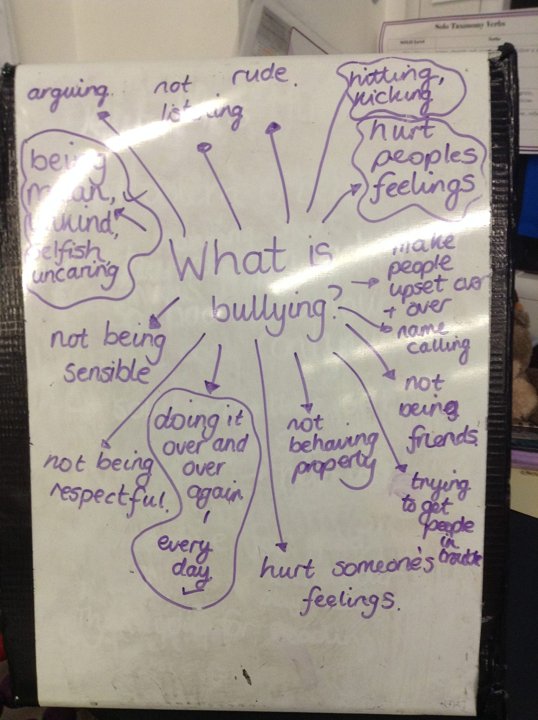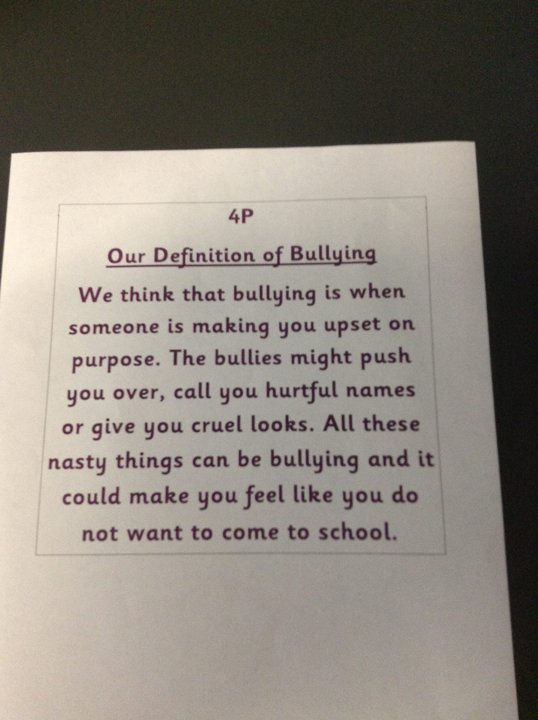Safeguarding Children is Everybody's Responsibility
Safeguarding and promoting the welfare of children is defined as: protecting children from maltreatment; preventing impairment of children’s health or development; ensuring that children grow up in circumstances consistent with the provision of safe and effective care; and taking action to enable all children to have the best outcomes.
Safeguarding is not just about protecting children from deliberate harm. It relates to aspects of school life including:
- pupils’ health and safety
- the use of reasonable force
- meeting the needs of pupils with medical conditions
- providing first aid
- educational visits
- intimate care
- internet or e-safety
- appropriate arrangements to ensure school security, taking into account the local context
At St Silas Primary School our first priority is the welfare and safety of all the children in our care. We are committed to providing the highest standards in protecting and safeguarding all our children at all times.
If your child is not in school we will contact you, to make sure the child is with you. If we cannot contact the first identified person on our contact list, we will contact the second person. It is important that we confirm that your child is safe.
All safeguarding documentation is read and understood by all the teaching staff, non-teaching staff and governors of St Silas Primary School.
The senior leadership team are responsible for the recording, implementation and tracking of all statutory updates and training requirements.
The Headteacher and SLT carry out induction meetings with newly appointed staff to ensure key messages, policies and procedures are followed.
Are you concerned that a child is being abused or neglected?
If you are concerned about a child and you feel they are being abused, neglected or at risk of abuse/neglect, then you should consider making a safeguarding child referral.
Contact Blackburn with Darwen Children's Advice and Duty Service (CADS) for confidential advice and consultation. Monday to Friday 08.45-17.00 please call:
01254 666400
If you are calling outside these hours please contact our Emergency Duty Team on 01254 587547.
You can contact the Blackburn with Darwen Local Safeguarding Children Board by following this link:
You can also report your concerns online:
NSPCC Website: www.nspcc.org.uk
Or you can also speak to:
NSPCC 0800 800 5000
Childline 0800 1111
Useful Information for Parents - Keeping Children Safe
Prevent Strategy
As part of St Silas's commitment to safeguarding and child protection we fully support the government's Prevent Strategy, and take guidance from Teaching Approaches to help build resilience to extremism.
Mrs L. Smith is the Prevent Lead at St Silas School.
What is the Prevent strategy?
- Prevent is a government strategy designed to stop people becoming terrorists or supporting terrorist or extremist causes.
- The Prevent strategy covers all types of terrorism and extremism, including the extreme right wing, violent Islamist groups and other causes.
How does the Prevent strategy apply to schools?
- From July 2015 all schools (as well as other organisations) have a duty to safeguard children from radicalisation and extremism.
- This means we have a responsibility to protect children from extremist and violent views the same way we protect them from any other harm.
- Importantly, we can provide a safe place for pupils to discuss these issues, at an appropriate level so they better understand how to protect themselves.
What does this mean in practice at St Silas Primary School?
Many of the things we already do in school to help children become positive, happy members of society also contribute to the Prevent strategy. These include:
- Having a strong Aims and Ethos which pervades our school.
- Focusing on core values.
- Exploring other cultures and religions and promoting diversity.
- Challenging prejudices and racist comments.
- Developing critical thinking skills and a strong, positive self-identity.
- Promoting the spiritual, moral, social and cultural development of pupils, as well as British values such as democracy.
We will also protect children from the risk of radicalisation, for example by using filters on the internet to make sure they can’t access extremist and terrorist material, or by vetting visitors who come into school to work with pupils.
Different schools will carry out the Prevent duty in different ways, depending on the age of the children and the needs of the community.
Isn’t my child too young to learn about extremism?
The Prevent strategy is not just about discussing extremism itself, which may not be appropriate for younger children. It is also about teaching children values such as tolerance and mutual respect. This is what we will focus on at St Silas Primary School.
The school will make sure any discussions are suitable for the age and maturity of the children involved.
Is extremism really a risk in our area?
Extremism can take many forms, including political, religious and misogynistic extremism. Some of these may be a bigger threat in our area than others.
We will endeavour to give children the skills to protect them from any extremist views they may encounter, now or later in their lives.
Further information
Contact the school - If you have any questions or concerns about the Prevent Strategy and what it means for your child, please do not hesitate to contact the school.
See our policies - You will find more details about radicalisation in our safeguarding policy, available on our website. We also have information about spiritual, moral, social and cultural development and British values.
Key Terms
Extremism – vocal or active opposition to fundamental British values.
Ideology – a set of beliefs
Terrorism – a violent action against people or property, designed to create fear and advance a political, religious or ideological cause
Radicalisation – the process by which a person comes to support extremism and terrorism
Internet and E-Safety
E-Safety is an important part of keeping children safe at St Silas Primary School . We have extensive security measures in place in school to help safeguard pupils from potential dangers or unsuitable material. Internet and E-Safety is taught to all pupils explaining and demonstrating how to stay safe and behave appropriately online.
We can only be successful in keeping children safe online if we work with parents to ensure the e-Safety message is consistent. It is important that parents speak to their children about how they can keep safe and behave appropriately online.
It’s essential to be realistic - banning the internet or technology will not work and it often makes a child less likely to report a problem. Education around safe use is essential.
Filtering
Our filtering platform is Netsweeper (https://www.netsweeper.com/
Useful Information about staying safe online can be found at:
https://www.saferinternet.org.uk/
https://parentzone.org.uk/digitalparenting
Who do I go to in school if I am worried?
Mrs Laura Smith is the Designated Safeguarding Lead. She is the person you should speak to if you are concerned about anything to do with safeguarding. She can be contacted by ringing school on 01254 698447 or my emailing laura.smith@cidari.co.uk.

The deputy Designated Safeguarding Lead is Mrs Michele Battersby ,the Headteacher. She can be contacted by ringing school on 01254 698447 or my emailing michele.battersby@cidari.co.uk.
.jpg)
Miss Kathryn Haczycki, the Deputy Headteacher,is also a Deputy Designated Safeguarding Lead. She can be contacted by ringing school on 01254 698447 or my emailing kathryn.haczycki@cidari.co.uk.
.jpg)
Safeguarding
Our filtering platform is Netsweeper (https://www.netsweeper.com/
As a school, we take bullying seriously. Our values of belonging and love underpin our work to prevent bullying. We have Friendships Weeks annually and we consider participation in such events essential in ensuring the wellbeing of our children. During Friendship Week we focus on educating the children on how to be good friends and on how we can stop bullying in our school.














